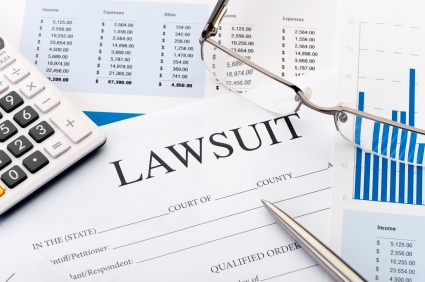If you are behind on your credit card payments, then there is a possibility that a creditor will eventually serve you with a summons and complaint to collect on the debt. The key factor is not to panic and assume that the creditor will be immediately able to garnish your paycheck, levy your bank account or put a lien on your home. When people see a summons and complaint for the first time they incorrectly assume the creditor will be immediately able to take assets from them.
When you default on your credit card payment then creditor can seek to collect payment on the credit card through filing a lawsuit in court. In California, you have 30 days to respond to the summons from the date you were served. This does not mean that immediately after the 30 days end the creditor will be able to again immediately start garnishing your wages or levy a bank account. Once the 30 days have elapsed then a creditor can file an application for entry of default and request a default judgment. The default judgment is what allows a creditor to apply for a writ of execution or an earnings withholding order. When you fail to answer the complaint the creditor generally takes anywhere from 2 months or longer to start garnishing your wages or levy your bank account. What options do you have if you are served with a summons and complaint?
1. File a answer to the complaint that was filed. If you are filing an answer to the complaint then you can use form PLD-050 to answer the credit card lawsuit if it is an unverified complaint or it is a verified complaint and the amount that you are being sued for is less than $25,000 from the credit card company. If the lawsuit involves a verified complaint from a third party collecting on the debt and it is for more than $1,000 then you will have to use another answer form. This form only applies if you are answering a complaint in California. Below is a link to the form you need to fill out if you are answering the complaint:
In submitting this answer you are denying the allegations stated in the complaint. You can additionally add further affirmative defenses if you wish.
There are many affirmative defenses that can be stated when filing the answer but I am just going to discuss two of the most commonly used defenses. You can allege as a defense the following:
- Running of Statute of Limitations- a creditor must bring a claim within a certain period of time. For written contracts in California the time frame is 4 years. If they have failed to bring a claim within this period of time then you can allege as a defense that the statute of limitations has elapsed.
- Failure to State a Cause of Action-If you feel that the complaint does not state all of the necessary elements for the cause of action then you can state this defense. For example if it involved a lawsuit from a credit card company on a written contract then they should provide the following elements: 1) the existence of a contract, including whether the contract was oral or written; 2) performance or attempted performance of the contract by plaintiff; 3) breach of the contract by defendant; and 4) damages suffered by plaintiff as a result of defendant’s breach. If the complaint does not provide one of these elements then you can allege this defense.
You must file the answer with the court, serve the plaintiff and file the proof of service that you have served the plaintiff. When serving the plaintiff through mail you can use this form: Proof of Service and file it with the court. By filing an answer to the complaint the court may set a trial date or if the creditor fails to prosecute the case the case may eventually get dismissed.
2. Ask the attorney for more time to respond to the complaint. You can request that the attorney provide you more time to answer the complaint. Most attorneys will provide you with more time to respond to the complaint. Keep in mind that they will not provide you with an extended period of time to respond.
3. Call the attorney that is representing the credit card company and try to come some agreement for a payment plan that you are willing to stipulate to.
4. File for bankruptcy protection. If you are insolvent and have creditors who are contacting you in regards to outstanding debts then you should contact a local bankruptcy attorney to discuss the option of filing for bankruptcy. Filing for bankruptcy will stay the proceedings with regards to the lawsuit. This means that the creditor will be stopped from moving forward with the lawsuit when your bankruptcy case is filed.
It is important that if you are being sued that you take some action to resolve the situation. It is important not to wait until there is a levy on your bank account or a wage garnishment order to take action in your case. The sooner you address the situation the quicker you can resolve the lawsuit. If you are considering filing for bankruptcy then contact a local bankruptcy attorney immediately to help you resolve the credit card lawsuit.

